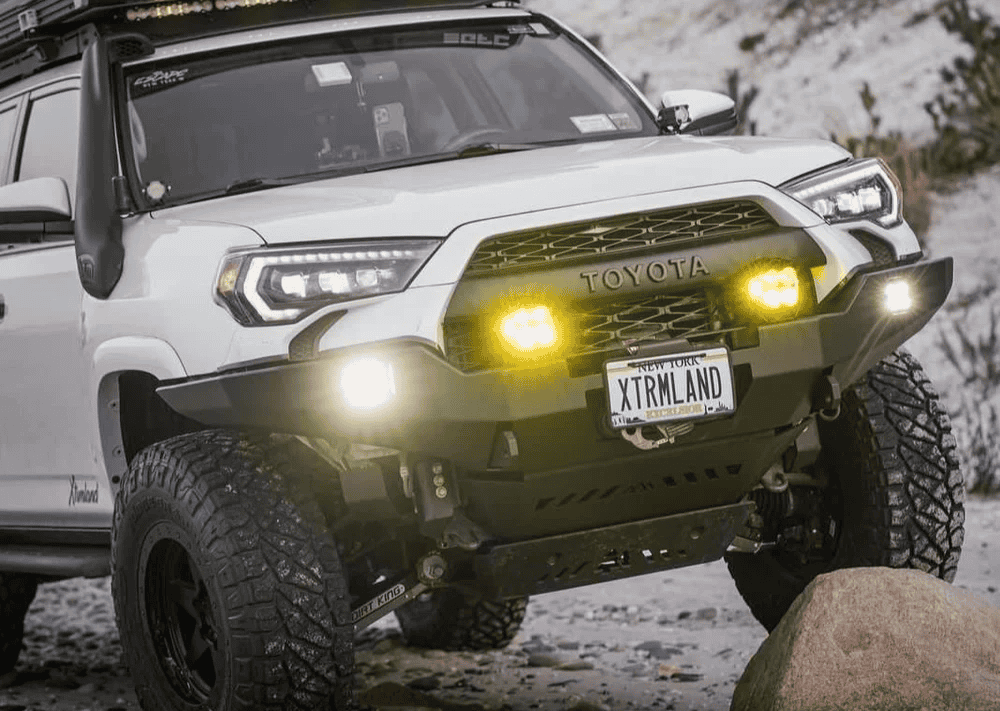Overland Vehicles

A dedicated off-road builder is more than a parts installer. They architect the whole system so the vehicle keeps its composure when the map turns blank. The process begins with use case mapping, where daily range, payload, climate, and trail class are translated into platform and component choices. Builders then design around these constraints, balancing travel quality with durability and serviceability so road trips do not become repair trips.
The right foundation matters. Vans, midsize trucks, and full-size platforms each bring tradeoffs in wheelbase, overhangs, and cargo volume. A specialist will quantify stance, breakover, and approach angles, then check how weight distribution changes with water, fuel, and gear. They also model tire size against axle ratios and transmission behavior so you do not lose drivability after upsizing.
Suspension is a system, not a part. Spring rates must match real, measured payload, while shocks are valved to control both slow body movement and high frequency chatter. Reinforced brackets, control arms, and bump stops protect the chassis when the trail gets choppy. Quality builders fabricate armor that loads into factory hard points, preserving crush zones and avoiding stress risers that can crack frames.
A responsible shop proves designs on graded roads, rocky climbs, and long highway stretches. They look for shock fade, hot brakes, steering oscillation, and electrical noise under full load. Wiring is loomed, fused, and labeled, with isolation for critical circuits. DOT lighting standards, recovery point ratings, and winch anchoring are documented, not guessed.
Tires and wheels define your contact patch. A specialist will size tires for terrain and gearing, spec load ratings that match actual axle weights, and select wheels with proper offset for scrub radius and bearing life. The result is precise steering on pavement and predictable grip on dirt.
Builders who care about longevity select high strength steel where impacts concentrate and aluminum where weight savings matter. They choose hardware with proper coatings and torque specifications, use threadlocker where vibration is high, and avoid mixing metals without isolation. Welding is controlled for heat and penetration, then finished for corrosion resistance.
Serviceability is a design input. Access panels, labeled harnesses, and common wear items placed within reach reduce downtime and cost of ownership. The best rigs ship with inspection checklists and torque references so owners can stay ahead of issues.
A proven shop decomposes the project into phases, sharing line item costs and lead times. They will prioritize safety and reliability first, then comfort and cosmetics. Clear milestones let you test changes incrementally before committing to additional upgrades.
Interview builders the way you would a guide. Ask how they match spring rates to real weights, how they validate shock tuning, and how they rate recovery points. Review trail test data, not just photos. A dedicated off-road builder should show repeatable processes, from CAD and jig work to road tests and post trip inspections. Support after the handoff matters too, especially when trips take you far from service networks.
If your goal is a capable travel rig with balanced manners on pavement and confidence in the backcountry, work with a team that treats each build as a system. Start by exploring proven packages and custom options that reflect the way you actually travel. For a deeper look at platforms and layouts, see explore overland rigs. When you are ready to discuss a tailored package, review the approach behind our custom overland upfit services and how we map use cases to parts. Want to vet philosophy and workmanship values before you commit? Read why choose OZK Customs to understand our build process and delivery experience.
OZK Customs builds complete adventure vans and overland rigs from Fayetteville, Arkansas, with a focus on thoughtful suspension tuning, clean power systems, and smart storage that holds up to real miles. Clients fly in, pick up, and shake down their rigs on the trails of Northwest Arkansas before heading home. If you want a clear plan and a calm handoff, reach out at OZK Customs and let us craft a system that fits your routes and gear.
Your routes deserve a rig that feels planted on washboard roads, quiet over miles of corrugations, and dependable when camp sits far from pavement. Tell us how you travel and what you carry. OZK Customs in Fayetteville, Arkansas will design a complete build or a targeted upfit that fits your terrain, timeline, and budget. Share a few details and we will start a clear, no pressure plan for your dream overland rig.
ADDRESS:
6159 E Huntsville Rd, Fayetteville, AR 72701
PHONE:
(479) 326-9200
EMAIL:
info@ozkvans.com